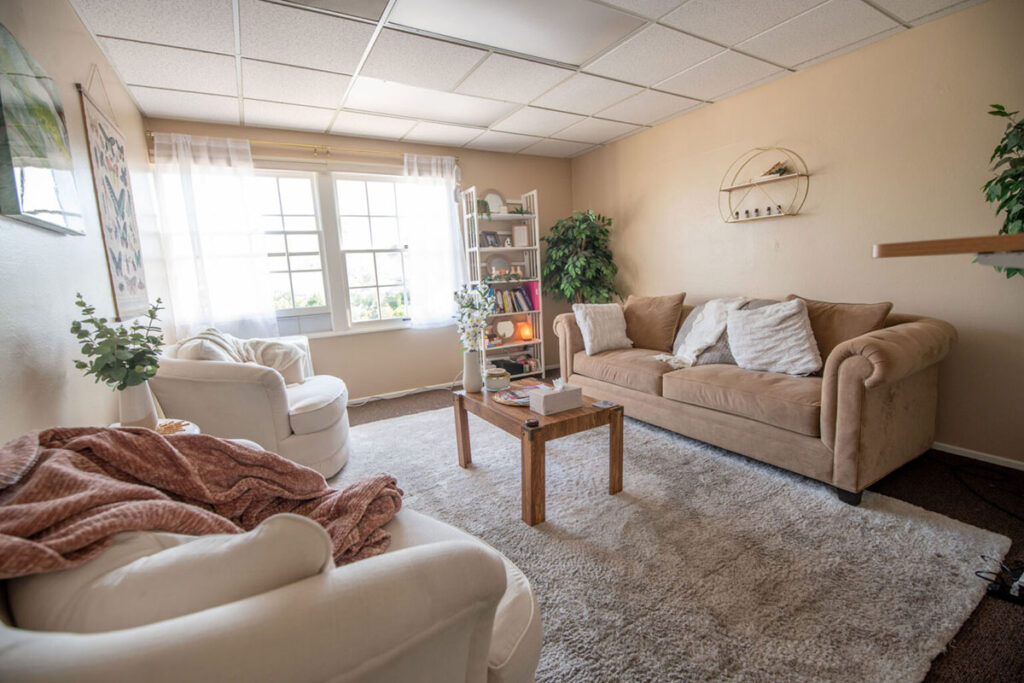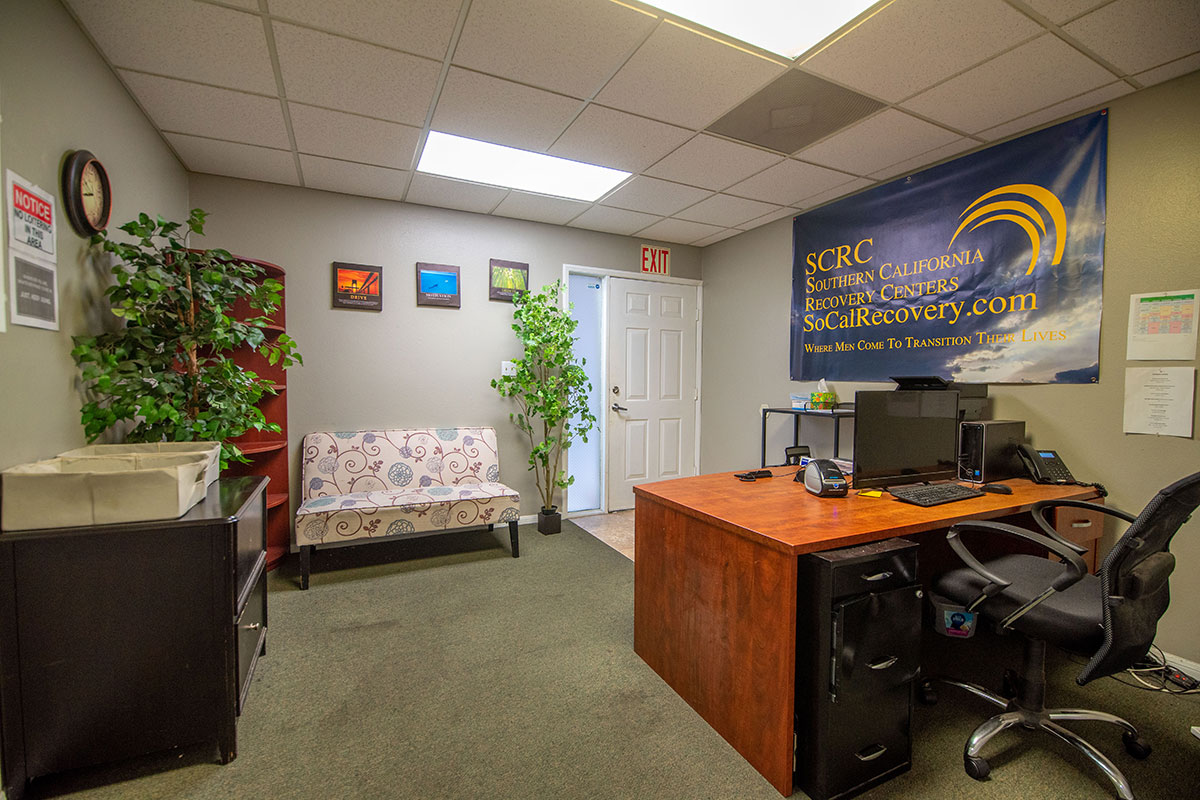Looking for a flexible choice for addiction treatment? Consider outpatient rehab.
Outpatient rehab offers a pathway that allows you to balance treatment with your daily life. In an outpatient program, you can heal while maintaining work, school, or family commitments. This guide contains everything you need to know about outpatient rehabs–from how they work to their major benefits–to help you evaluate whether outpatient addiction rehab is the right choice for you.
Discovering the path to recovery while maintaining your daily life – that’s the promise of outpatient rehab.

What is Outpatient Rehab?
Simply put, outpatient rehab just means that you don’t move in.
The more complex answer is that outpatient rehab is a therapeutic approach designed for individuals who require support for substance use disorders, but can manage their recovery without the need for round-the-clock supervision. It’s an ideal choice for those with a strong support network and a stable living situation, offering a structure that encourages independence while providing essential recovery resources.
How Outpatient Rehab Works
At Southern California Recovery Centers (SCRC), we’re a male-only outpatient rehab that has been proudly supporting men in their recovery journey for over 13 years. Our approach? We zero in on job and life skills, work through trauma, and ensure a smooth, continuous care process—all tailored to help countless men step back into the world with a renewed sense of purpose.
Here at SCRC, our treatment is spread over three phases. Phase one kicks off with a structured, immersive 5-day-a-week, 6-hour-a-day program, welcoming you to Carlsbad or Dana Point and laying down a solid sobriety foundation. Phase two is all about building healthy habits, sharpening life skills, and encouraging your passions—the core of our program. The final stretch, phase three, is where we focus on fostering your independence.
You’ll team up with our passionate crew at SCRC—peers, counselors, therapists, doctors, guest speakers, and group facilitators—all dedicated to giving everyone who walks through our doors the opportunity for a real-life transformation.
Inpatient vs Outpatient Rehab: What’s the Difference?
Inpatient rehab involves staying at a treatment facility with 24-hour care, which is ideal for those with severe substance use issues needing a focused, supportive environment. Outpatient rehab, on the other hand, allows individuals to live at home and continue daily activities while attending scheduled treatment sessions, suitable for those with a strong support system and moderate substance dependence. The choice between the two depends on the individual’s specific needs and the severity of their condition.

Types of Outpatient Rehab Programs
Outpatient drug rehab and outpatient alcohol rehab programs come in various formats to cater to different needs and levels of substance use severity. Understanding your options can help you find the program that best matches your recovery goals:
Standard Outpatient Rehab Programs (OP): These involve a few hours of therapy per week, offering the least intensive level of care. This option is ideal for individuals with strong support networks and a high level of motivation for recovery.
Intensive Outpatient Rehab Programs (IOP): IOPs require more time commitment than standard outpatient programs, typically involving multiple sessions per week that last several hours. They’re designed for individuals needing more support than OP offers but who still require the flexibility to maintain their daily responsibilities.
Partial Hospitalization Programs (PHP): Also known as “day programs,” PHPs provide the highest level of care among outpatient options, with participants attending treatment sessions for multiple hours per day, several days a week. This option is suited for those who need intensive treatment but can safely reside outside of a facility.
Online Outpatient Rehab: Leveraging digital platforms, online outpatient rehab offers therapy and support through virtual meetings, allowing individuals to access care from anywhere. This is particularly beneficial for those with limited access to traditional rehab facilities or those seeking additional flexibility.
Gender-Specific Outpatient Rehab: Some outpatient rehab programs cater specifically to men or women. Gender-specific environments can provide a sense of safety, and they can be more effective at targeting gender-specific issues that contribute to addiction. SCRC offers one of the most established men’s rehab programs in California.
Each type of outpatient rehab program offers a different level of intensity and support, making it important to choose one that aligns with your unique needs and recovery journey.

Benefits of Outpatient Rehab
Outpatient rehab provides several benefits that make it a preferred choice for many, including:
Flexibility: Allowing individuals to receive treatment without disrupting their daily lives.
Affordability: Typically, outpatient programs are more cost-effective than residential alternatives, making them accessible to a wider range of individuals.
Real-Life Application: By remaining in their environment, participants can apply the coping strategies and lessons learned in real-time, offering immediate feedback and learning opportunities.
Support Network: It encourages the strengthening of personal relationships and community ties, providing a natural support system that is crucial for long-term recovery.
How Much Does Outpatient Rehab Cost?
The cost of outpatient rehab varies widely based on the program type, frequency of sessions, and services provided. Standard outpatient programs are generally the most affordable, potentially costing a few hundred dollars per month, while Intensive Outpatient Programs (IOP) and Partial Hospitalization Programs (PHP) can range from $1,000 to $10,000 per month. Online outpatient rehab may offer a cost-effective alternative, with prices varying by provider. Many insurance plans cover outpatient rehab, partially or fully, so it’s important to verify coverage with your insurance company. Additionally, some programs offer sliding scale fees or payment plans to help make treatment more accessible.
Is Outpatient Rehab Right for Me?
Deciding if outpatient rehab is right for you involves evaluating your personal situation, substance use severity, support network, and daily obligations. Outpatient rehab may be right for you if you have a moderate level of substance dependence, a stable living environment, and a reliable support system. It’s also suited for individuals seeking to balance treatment with work, education, or family responsibilities, offering flexibility to integrate recovery into your daily life.
It may be helpful to assess your commitment to recovery, ability to maintain sobriety in your current environment, and readiness to actively participate in scheduled therapy sessions. If you find yourself resonating with these conditions, outpatient rehab could provide the structure and support you need while allowing you to maintain your day-to-day activities.
Where to Find Outpatient Rehab Treatment
Finding the right outpatient treatment starts with researching reputable programs tailored to your needs. SCRC specializes in comprehensive outpatient services for men, offering a range of programs from standard outpatient to intensive care. Our dedicated team is committed to providing personalized support, ensuring that each individual’s journey toward recovery is met with understanding and expertise. To explore how SCRC can support your path to recovery, visit our website or contact us directly. Take the first step toward a healthier, sober life with SCRC today.



